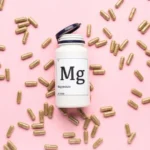Iron Benefits: Iron is one of the most crucial minerals for the human body. It plays a vital role in the production of hemoglobin, which is responsible for transporting oxygen in the blood. Without enough iron, your body can’t function properly, leading to various health problems. In this article, we will explore the main benefits of iron, the symptoms of iron deficiency, and how to maintain healthy levels of iron in your body.
What Is Iron and Why Is It Important?
Iron is a mineral found in many foods and is essential for the normal functioning of the body. Its main role is to help produce hemoglobin, the protein in red blood cells that carries oxygen from the lungs to all organs and tissues in the body. Without iron, cells wouldn’t receive enough oxygen, which would impair their proper functioning.
Additionally, iron is important for muscle health, brain function, and the immune system. A deficiency in iron can lead to fatigue, weakness, heart problems, and other serious health issues.
Iron Benefits for Your Health
- Boosts Energy Metabolism
Iron is crucial for energy production in cells. As a key component of hemoglobin, it ensures the transport of oxygen to the cells, which is vital for their efficient functioning. Without enough iron, your body doesn’t get the oxygen it needs, leading to fatigue and exhaustion.
Benefit: Maintaining optimal iron levels can help you feel more energetic and prevent feelings of fatigue.
- Strengthens the Immune System
Iron plays a key role in supporting a healthy immune system. It helps produce white blood cells, which fight infections and protect the body. Iron deficiency can reduce immune activity and increase the risk of illness.
Benefit: Adequate iron levels support the immune system and protect the body from infections.
- Improves Brain Function
Iron is essential for brain health and cognitive function. Since iron helps supply oxygen to the brain, a deficiency can result in memory problems, poor concentration, and mood issues. This can manifest in symptoms such as delayed reaction time, difficulty focusing, and even depression.
Benefit: Sufficient iron intake supports cognitive function, improving memory and concentration.
- Supports Heart Health
Iron is a critical component of hemoglobin, which delivers oxygen to the heart. Without enough oxygen, the heart must work harder to supply oxygen to the rest of the body. This can lead to heart disease and fatigue.
Benefit: Keeping iron levels within normal range is important for heart health and preventing cardiovascular diseases.
- Supports Muscle Function
Iron is also important for muscles, as they too need oxygen to function properly. A lack of iron can lead to muscle weakness and pain.
Benefit: Adequate iron levels support muscle function and help maintain strength and endurance.
Symptoms of Iron Deficiency
Iron deficiency can lead to several symptoms that should be closely monitored. Some of the common signs include:
- Fatigue and Weakness: Without enough oxygen in the body, you feel tired and drained.
- Pale Skin and Mucous Membranes: As iron is a main component of hemoglobin, its deficiency can cause paleness.
- Brittle Nails: Lack of iron can cause nails to become weak, brittle, and thin.
- Shortness of Breath and Heart Palpitations: This happens because the heart has to work harder to compensate for the lack of oxygen.
- Headaches and Dizziness: Oxygen deprivation to the brain can result in frequent headaches and dizziness.
How to Maintain Healthy Iron Levels?
Iron can be obtained from food or supplements. Here are some foods rich in iron:
- Red Meat (beef, lamb)
- Poultry (chicken, turkey)
- Fish and Seafood (salmon, oysters)
- Legumes (lentils, chickpeas, beans)
- Leafy Green Vegetables (spinach, kale)
- Nuts and Seeds (almonds, sunflower seeds)
- Whole Grains (oats, brown rice)
Additionally, vitamin C helps with the absorption of iron from plant-based sources, so it’s a good idea to combine iron-rich foods with vitamin C-rich foods (like citrus fruits, bell peppers).
If you have a severe iron deficiency, iron supplements may be necessary, but these should always be taken under the supervision of a doctor.
Conclusion
Iron is a crucial mineral that plays an essential role in energy metabolism, heart health, immune function, and brain health. To maintain optimal iron levels, it’s important to eat a varied and balanced diet that includes iron-rich foods. Keep an eye out for symptoms of iron deficiency, and if necessary, consult a doctor for appropriate supplements.



